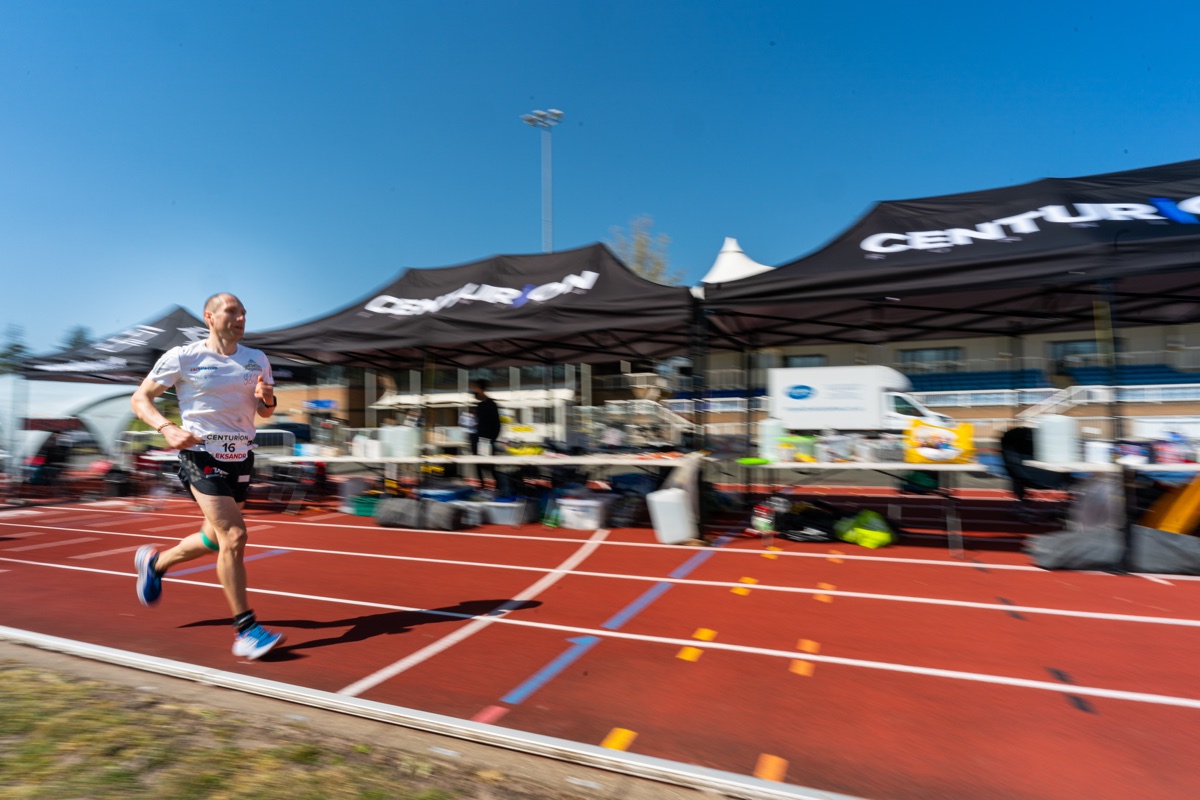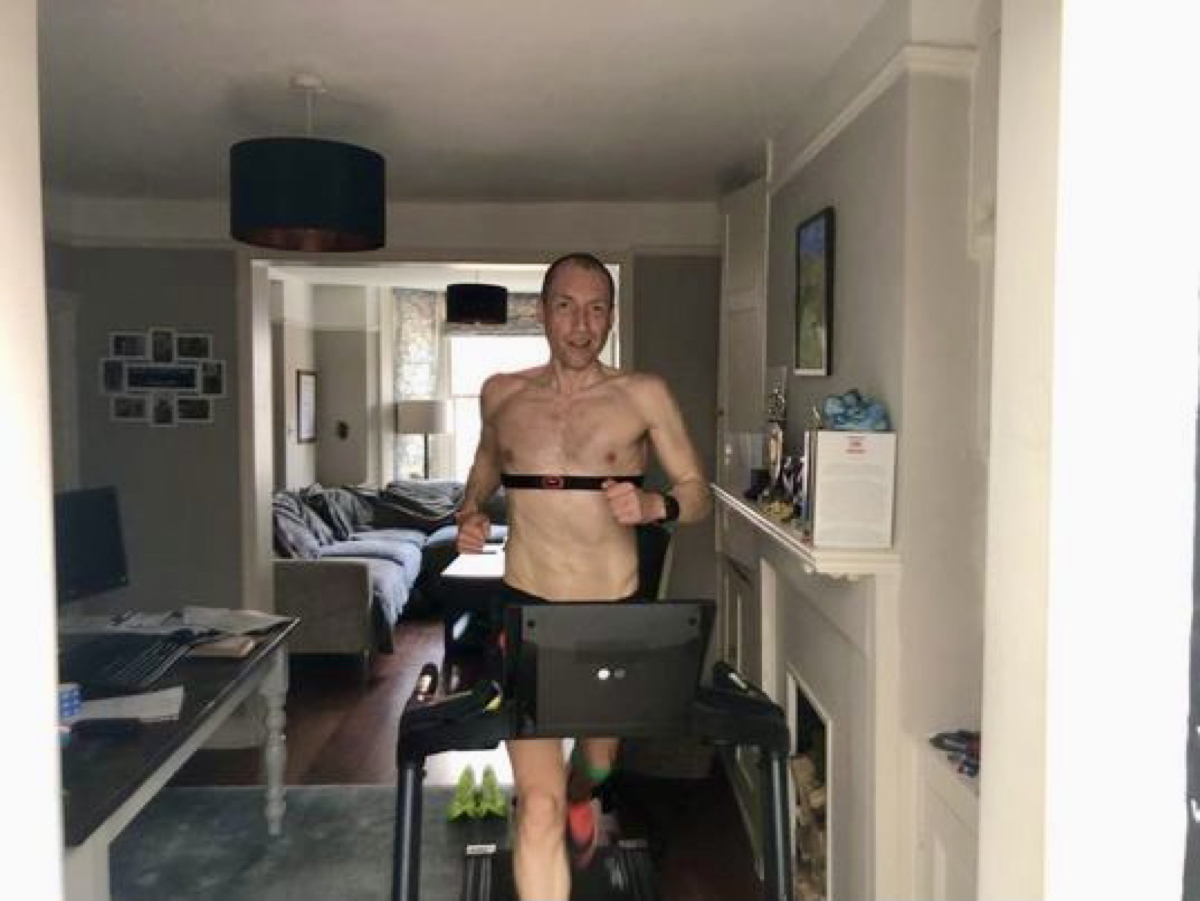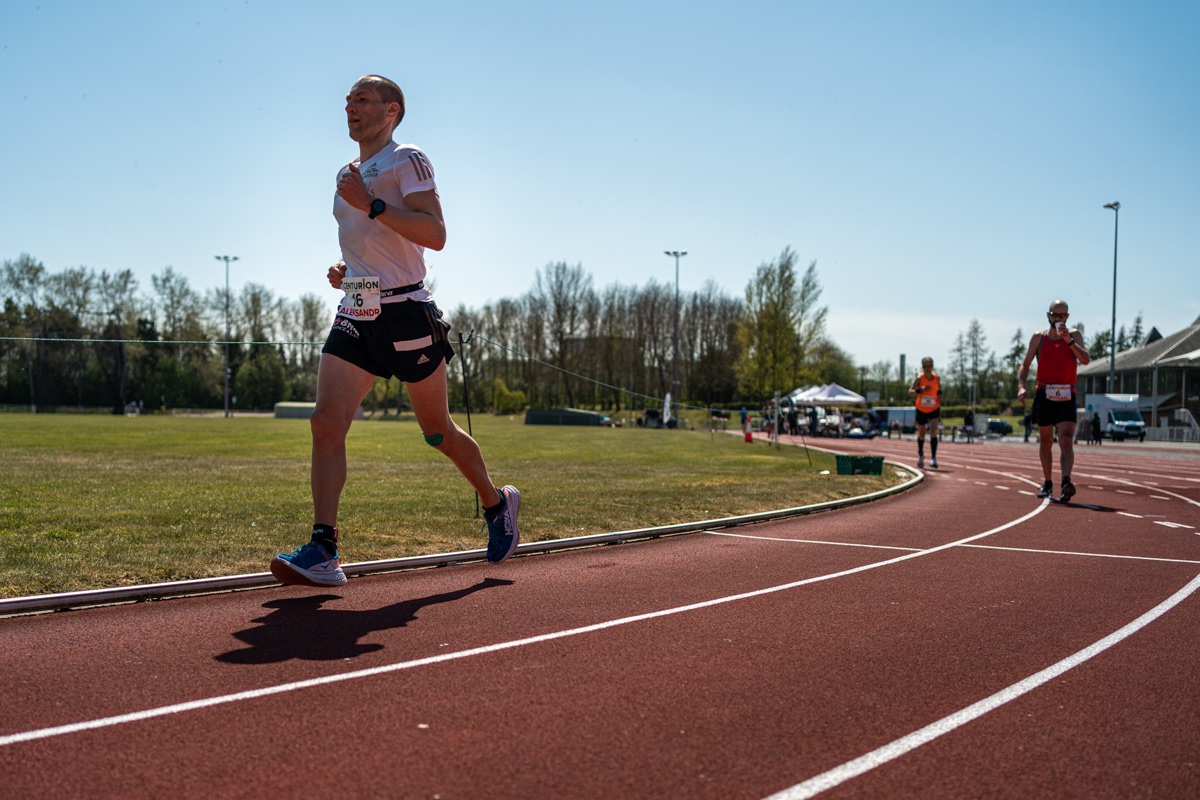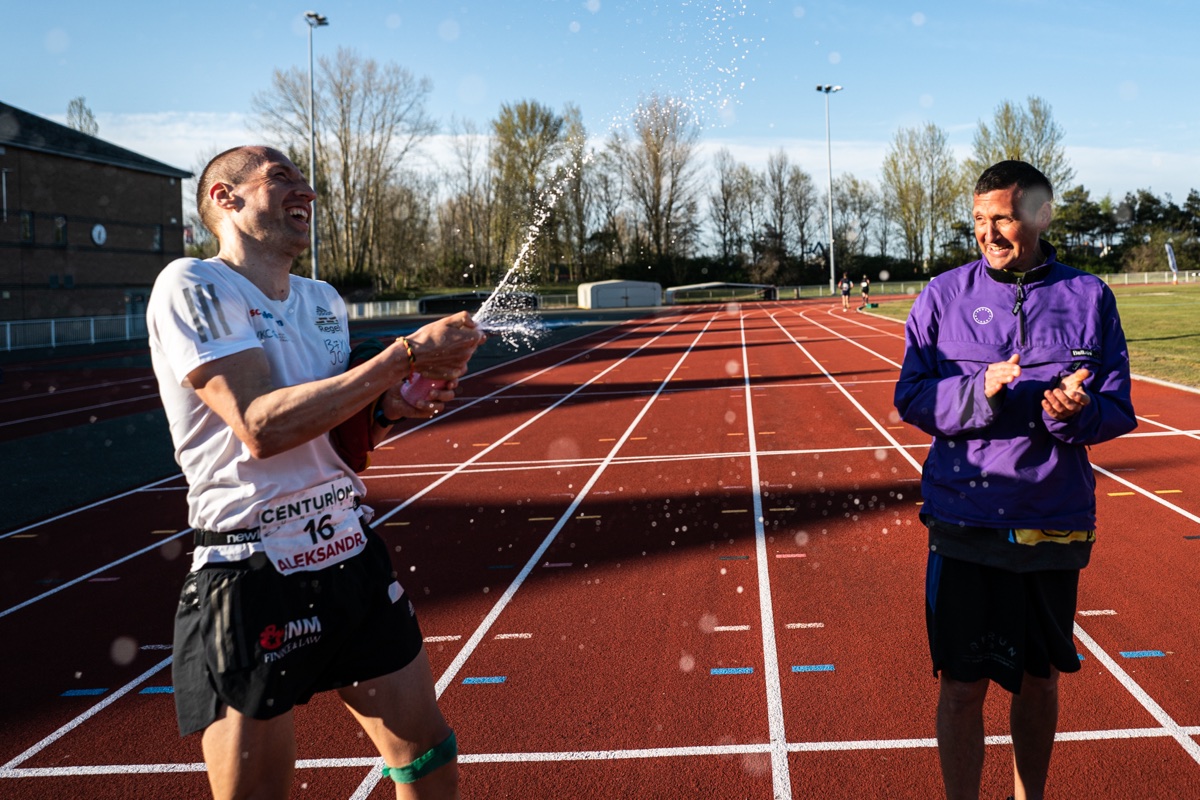Lithuania’s Aleksandr Sorokin set new world records for 150 kilometers, 100 miles, and 12 hours as well as a 50-mile Lithuanian record during the 2021 Centurion Running Track 100 Mile in England. His world record for 150 kilometers (93.206 miles) is 10:27:48, his 100-mile (160.934 kilometers) world record is 11:14:56, and his 12-hour world record was a distance of 105.825 miles/170.309 kilometers. His 50-mile Lithuanian record is 5:32:01. For perspective, his overall pace for the 12 hours of running was 6:48 minutes per mile (4:14 per kilometer).
In this written interview two days after his performance, Sania, as he is called by family and friends, talks about how he started running as an adult to get healthy, his life outside of running in Lithuania, how he trained for this race, and how his effort unfolded on race day.
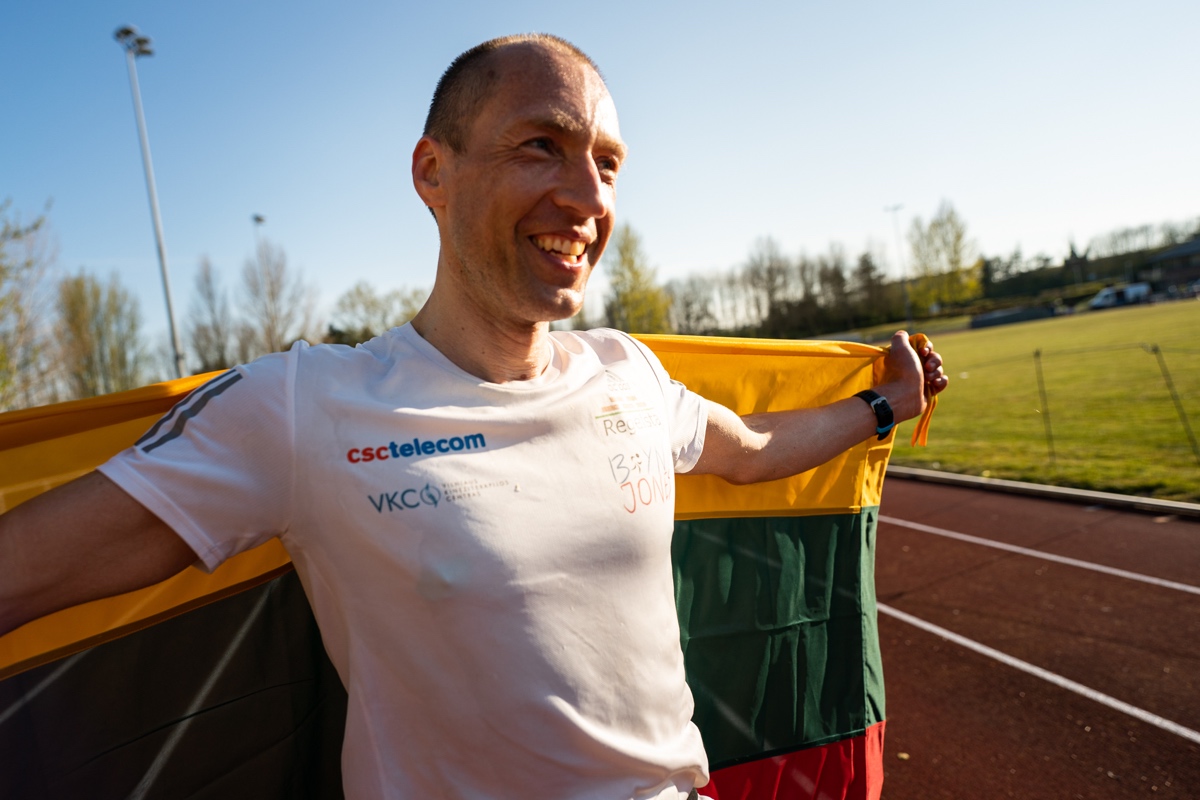
Aleksandr Sorokin after setting the 150-kilometer, 100-mile, and 12-hour world records at the 2021 Centurion Running Track 100 Mile in England on April 24. Photo: Steve Ashworth Media
iRunFar: What is your history with running? At what age did you start training seriously? And when did you decide to focus on track and road ultrarunning?
Aleksandr Sorokin: In my youth, my sport was kayaking. I had good results, but I got injured and decided to end my sports career. Then alcohol, cigarettes, and a lot of food began. My weight became about 100 kilograms [220 pounds]. One day I said to myself, Enough! You have to do something about this. I quit drinking and smoking, and I started running. That was April of 2012. I even ran a half marathon! Once I saw a piece of paper on the ground, an invitation to race 100 kilometers. I decided it was a challenge to myself. I decided to run 100 kilometers. And from there this story began.
iRunFar: What do you do in Lithuania when you aren’t running? What is your job? And what are your other hobbies?
Sorokin: I work in a casino as a dealer. Hobbies? Probably running is my hobby. I also like to travel and play computer games. My favorite computer games are Dark Souls, Bloodborne, and Sekiro.
iRunFar: How did you decide to participate in the Centurion Running Track 100 Mile? How long have you been specifically preparing for it?
Sorokin: I’ve wanted to run 100 miles for a long time. Last year, [race director] James [Elson] invited me to this competition, but the COVID-19 pandemic canceled all plans. This year, due to the pandemic, my work also stopped, and I had more free time. I devoted it to running. I also did not know whether the competition would come out somewhere or if [we’d be unable to have races because of the pandemic.] And so it happened that I was able to compete in 100 miles at this race.
iRunFar: What was your training like in the few months before the race? Can you share a few examples of what your daily training looked like?
Sorokin: Usually I do two trainings a day. One is my main training, and the second is restorative. I do fast accelerations two times a week, and one long run. In my main training for his race, I ran about 260 kilometers [155 miles] each week. My long run was 50 kilometers [31 miles]. In my fast trainings, I ran intervals from 800 to 3,000 meters [in length.]
iRunFar: Were you targeting the 100-mile world record when you started the event? From the beginning you were running well under 100-mile world record pace. Was that intentional?
Sorokin: Yes, the plan was to run for a world record, but almost completely I did not know if I could achieve this. Only when there was about one hour left did I understand that I’d be able to set the record.
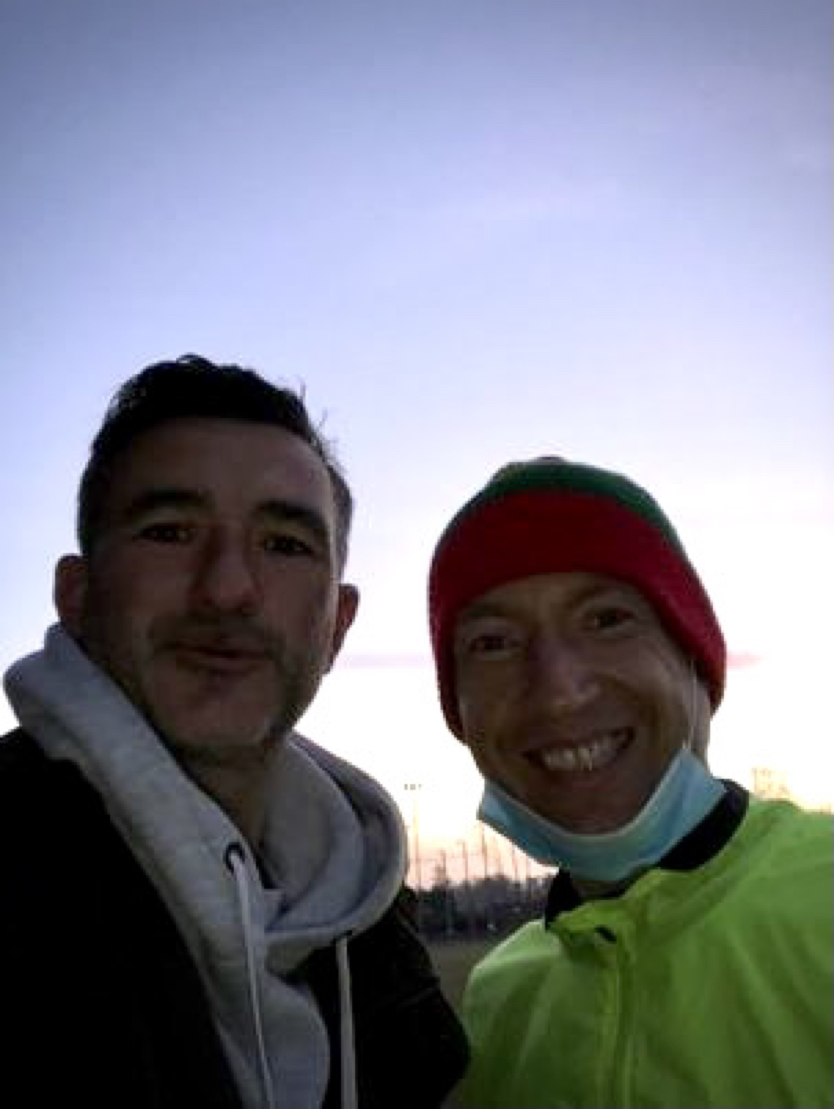
Sania (right) with his English host, Bryn Jones (left), before the start of the 2021 Centurion Running Track 100 Mile. Photo: Bryn Jones
iRunFar: What was the race like for you? Did you have any highs or lows physically or mentally?
Sorokin: After the middle in these races, there is usually a fall down in speed and mentality. This is because the end is so far away still, and you know the pain is coming. But I felt I could do this, and I knew I just needed to be patient.
iRunFar: How difficult were the final kilometers? What was going through your head then?
Sorokin: This time the last kilometers were easy. I knew it was almost over. I saw a world record. I even agreed to run further after 100 miles to go for the 12-hour world record [when I was told it was within reach.]
iRunFar: I saw in a Centurion Running video from the race that your crew passed you a piece of paper to see if you would continue after 100 miles to go for the 12-hour world record. What was that moment like from your perspective?
Sorokin: My first thoughts were: Why? No! I don’t want to! I’m tired enough already. But then I thought, Forty-five minutes, eight kilometers. I’d better do it now that I am here.
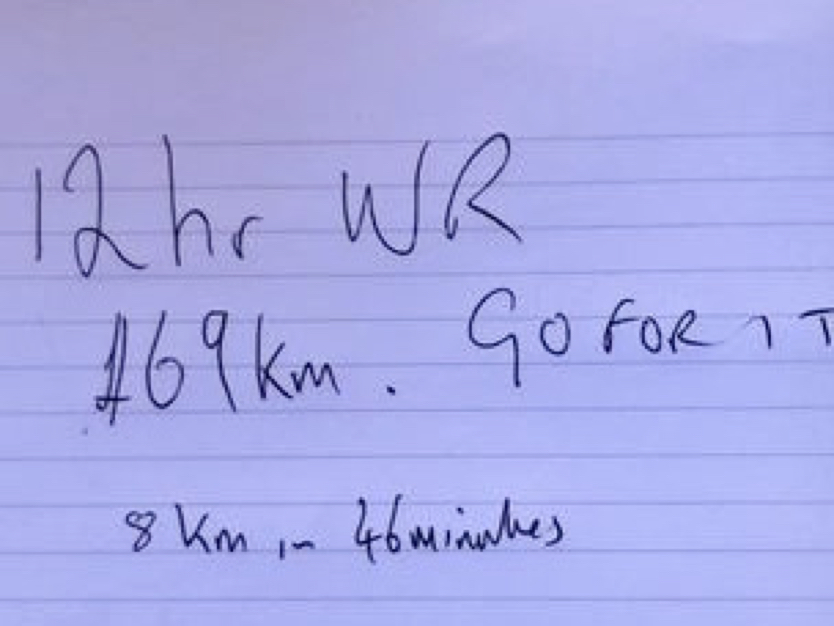
The paper handed to Sania mid-race to see if he wanted to continue for a 12-hour world record after setting a 100-mile world record. Photo: Bryn Jones
iRunFar: How do you feel now that the race is over? Do you feel satisfied with your performance?
Sorokin: Oh yeah! This is exactly the word that I feel: satisfaction!
iRunFar: What else do you plan to race this year? Will you return to defend your title at the IAU 24-Hour World Championships in October?
Sorokin: Yes, I plan to be at the 24-hour world championships. But I don’t plan any other races for the year besides [this one and the 24-hour championships.] I know I need the rest.
iRunFar: Do you have any funny or interesting stories from your time in England? I understand you’ve been there for a few weeks to quarantine before the race.
Sorokin: Everything worked out so well. I especially want to thank Bryn Jones. He provided me with everything: home, food, treadmill, and he helped me in the competition. Without him, I probably could not have participated in this competition and had my success!
iRunFar: It’s two days after your race while we are corresponding, and you are traveling home to Lithuania. How are you feeling and recovering?
Sorokin: I feel good now. I just feel happy.
iRunFar: Congratulations, and thank you for this interview!
